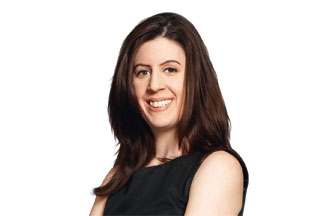Glamourous frocks and glitterballs, or the next teen sensations singing for their lives? Choosing between Strictly Come Dancing and The X Factor is not easy for millions of viewers in need of their dose of light entertainment on a Saturday evening.
The BBC's decision to pit its most popular show against ITV's has dragged the consumer directly into the argument over the licence-fee-funded broadcaster's encroachment on the commercial world.
This begs the question, at a time when commercial television is providing a satisfactory offering, as to what right the BBC has to run a programme aimed at a similar audience?
In my view, this is yet another example of breathtaking arrogance on the part of the BBC, and something its director-general, Mark Thompson, should not have allowed.
One can understand the BBC's desire to compete with its rivals and it has a duty to ensure licence-fee payers are offered high-quality programming at peak times. However, ITV is fighting for advertisers and needs The X Factor more than ever. Moreover, many viewers are likely to be irritated because they are now unable to watch their two favourite terrestrial shows.
What shocks me more about the BBC's latest scheduling faux pas is that it comes at a time when the broadcaster has been the subject of unprecedented high-profile criticism.
Only a month ago, News Corporation's James Murdoch delivered a much-reported speech at the Edinburgh International Television Festival, in which he referred to the BBC 'land-grabbing' and spoke of the failure of the BBC Trust to control the corporation.
More brickbats followed at the Cambridge Television Festival, where Channel 4 chairman Luke Johnson suggested that the BBC is so influential and powerful that ministers fear taking it on.
Perhaps most significantly, shadow culture secretary Jeremy Hunt has said that the corporation needs to be better-controlled on a number of levels. Comfortably propped up by a guaranteed £3.6bn annual income from the licence fee, the BBC seems oblivious to the woes of its rivals.
In Cambridge, Gerhard Zeiler, the chief executive of RTL, which owns Five, suggested that commercial broadcasters would have to cut their programme budgets. Meanwhile, BBC executives have been in Hollywood, spending about £100m a year on US shows, often outbidding UK rivals.
Then there is BBC Worldwide's acquisition of a majority stake in Lonely Planet, and the subsequent launch of a travel magazine to compete with the likes of Wanderlust.
Don't forget the commercial radio stations either; they, like ITV, rely on advertising in a difficult market, and cannot afford the high-profile talent deployed by BBC Radio.
I believe that all this demonstrates the need for better regulation of the BBC, and that the BBC Trust is an ineffective regulator. Its chairman, Sir Michael Lyons, may have weighed in on the Strictly scheduling row, but only after the deed was done.
This is more than just a matter of what is fair or unfair - rather, it is a question of ITV's survival. For consumers who look to the small screen for a cheap source of entertainment, messing with their weekend viewing habits is just not on.
The solution is for the BBC to become a more innovation-focused broadcaster, trying out new ideas, and passing these on to the commercial sector if they prove popular.
The government needs to be less fearful of putting the BBC back in its box.
Amanda Andrews is media editor at The Daily Telegraph, Sunday Telegraph and telegraph.co.uk
30 seconds on Strictly Come Dancing vs The X Factor
- Strictly Come Dancing and The X Factor have been mainstays of the autumn TV schedules since 2004.
- The top rating achieved by Strictly Come Dancing was 13.3m viewers during its 2008 final on 20 December. However, The X Factor had drawn a peak audience of 14m the week before.
- The X Factor's current series is also winning the ratings battle. During its launch show on 19 September, Strictly Come Dancing had a peak audience of 7.7m - almost 1m fewer than the 2008 launch show, and lagging its ITV rival by more than 2m.
- Both programmes have undergone controversial changes this year. In the case of Strictly Come Dancing, 66-year-old Arlene Phillips was dropped from the panel of judges in favour of 30-year-old former winner Alesha Dixon, sparking a row about age discrimination.
- Auditions for The X Factor have been held in front of a live studio audience, where previously they involved only the judges. Some television critics have complained that something fundamental has therefore been lost from this early part of the competition.


